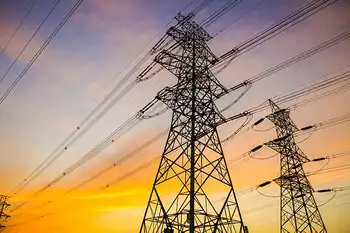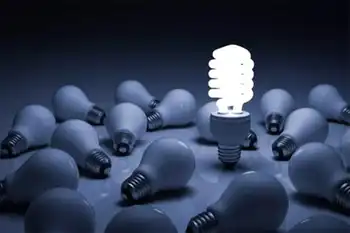Quebec government and Cascades invest in two energy efficiency projects
Arc Flash Training - CSA Z462 Electrical Safety
Our customized live online or in‑person group training can be delivered to your staff at your location.

- Live Online
- 6 hours Instructor-led
- Group Training Available
Cascades Cabano Energy Efficiency Projects will cut heavy-fuel oil use, upgrade biomass boilers, and lower GHG emissions in Quebec, advancing sustainable development, carbon market goals, and cleaner industrial energy performance.
Key Points
Quebec-backed upgrades to biomass boilers at Cascades Cabano to reduce heavy-fuel oil and GHG emissions.
✅ $11.3M total, $5.2M Quebec aid, $6.1M Cascades
✅ Biomass boiler upgrades improve uptime and efficiency
✅ Annual GHG cuts equal to 4,000 light-duty vehicles
With two major projects at its Cabano plant supported by the Quebec government, Cascades will significantly decrease its heavy-fuel oil consumption. These investments will result in an annual reduction of greenhouse gas emissions (GHG) in line with the federal coal plan and broader decarbonization efforts, equivalent to taking 4,000 light duty vehicles off the road!
Ministers Pierre Arcand and Jean D’Amour, and Cascades President and Chief Executive Officer Mario Plourde, have confirmed that the two energy efficiency projects represent a total investment of $11.3 million in the Cascades Containerboard Packaging–Cabano plant. The government of Quebec will contribute financial aid in the amount of $5.2 million for the two projects, while Cascades will invest $6.1 million, even as other provinces pursue electricity rate strategies to manage costs.
The projects consist in modifying two residual forest biomass boilers. One will be upgraded with automated controls. The second, more ambitious project involves installing a new combustion chamber and combustion air preheater to the other boiler. These projects will allow the plant to improve boiler operating time and efficiency while limiting the use of another boiler that consumes heavy-fuel oil.
“For many years, Cascades has been taking responsible steps in the area of energy efficiency. We can be proud of this Quebec business for rolling up its sleeves and unreservedly participating in the energy transition toward clean energy partnerships, which has been in full swing since our ambitious 2030 Energy Policy was released. This transition not only allows us to improve our quality of life and protect the environment, but also develops and modernizes Quebec’s economy,” said Pierre Arcand, Minister of Energy and Natural Resources, Minister responsible for the Northern Plan and Minister responsible for the Côte-Nord region.
“Projects like the ones announced today are part of a long list of environmental initiatives that have made Cascades a leader in sustainable development. This investment will allow us to reduce our ecological footprint and even further improve our energy performance. Thanks to our employees’ efforts and ingenuity, Cascades already consumes 2.7% less energy than the Canadian average to manufacture the same products,” added Mario Plourde, President and Chief Executive Officer of Cascades.
“With these two new energy efficiency projects, Cascades once again proves it is possible to combine environmental responsibility and economic development—objectives that are perfectly aligned with our government’s directions and with Hydro-Québec’s evolving role in continental markets. I am proud to see that Quebec companies are getting involved in the energy transition, to the benefit of all Quebecers!” said Jean D’Amour, Minister for Maritime Affairs and Minister responsible for the Bas-Saint-Laurent region.
“Thanks to the Green Fund, whose revenues mainly come from the carbon market via the Western Climate Initiative framework, the government is supporting Quebec businesses in their transition toward a more carbon‑constrained world. In addition to contributing to the modernization and sustainable development of our economy, this concrete measure, which ties into our 2013-2020 Climate Change Action Plan, allows us to fight climate change together, for a better future for our children. Let’s do this for them!” added David Heurtel Minister of Sustainable Development, the Environment and the Fight Against Climate Change.











